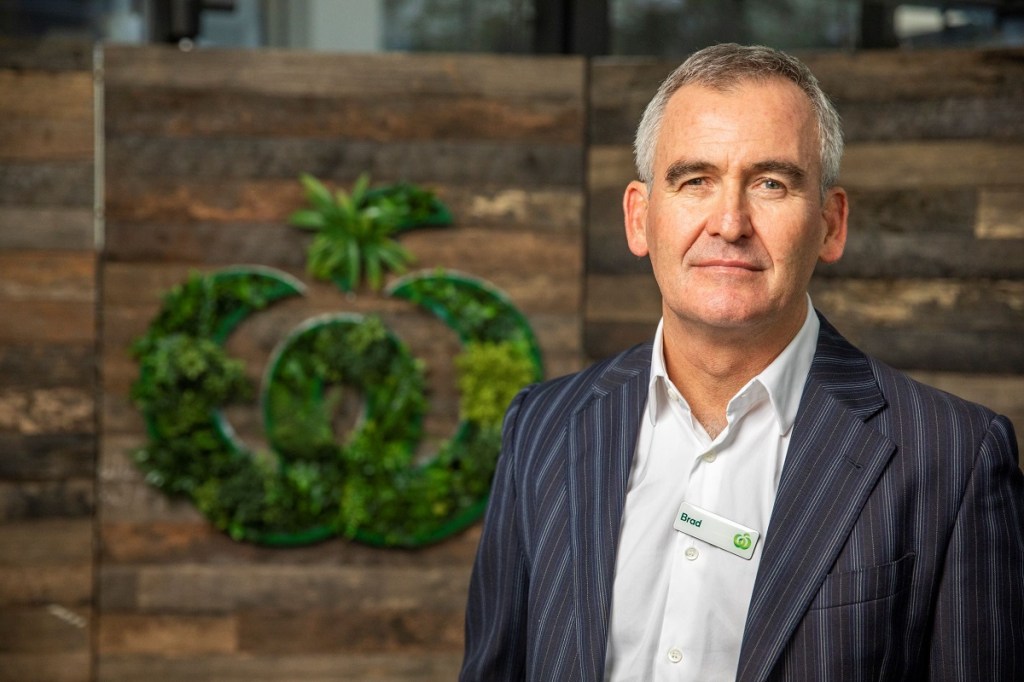Woolworths Group has reported strong sales growth of 9.7 per cent to $15.1 billion in its third quarter results, despite ongoing supply chain disruptions.
Woolworths Supermarkets (store-originated) sales for the quarter were $10 billion, up 2.4 per cent (3.7 per cent excluding Tobacco). Metro Food Stores sales (store-originated) for the quarter increased 7.3 per cent to $241 million and WooliesX B2C e-commerce sales increased 38.1 per cent to $1.1 billion, with sales penetration of 9.9 per cent.
Total Australian Food sales for the quarter increased 5.4 per cent to $11.4 billion, with Woolworths Retail sales increasing by 5.2 per cent.
Comparable sales for the quarter increased 4.4 per cent (5.8 per cent excluding Tobacco) with two-year average comparable sales growth of 1.0 per cent and three-year average comparable sales growth of 4.1 per cent.
In Australian Food, comparable transactions declined 4.8 per cent, partially offset by growth in items per basket of 4.3 per cent, with customers continuing to shop less frequently but with larger baskets.
Average prices increased 2.7 per cent with increasing shelf price inflation driven by industry-wide input cost pressures and lower promotional penetration due to stock availability challenges, particularly in the early part of the quarter.
Notable increases in Long Life categories included Drinks and Household Care; and in Fresh included Meat (most notably beef) with higher commodity cost prices, and Vegetables with supply impacted by poor growing conditions and flooding. Fruit remained deflationary driven by apples and avocados.
Woolworths Group CEO, Brad Banducci, said: “The continued impact of Omicron as well as widespread flooding has resulted in another challenging quarter for our business and the communities we serve. Despite the unfailing efforts of our teams, high levels of COVID-related team absenteeism and the disruption to our broader supply chain resulted in inconsistent customer shopping experiences and negatively impacted our customer metrics. Pleasingly, in recent weeks, we have begun to see more stability across the Group, but store stock service levels remain below normal levels.
“Group sales growth for the quarter was strong as a return to COVID-related shopping behaviour in the early part of the quarter led to higher in-home consumption in our Food businesses along with rising food inflation. We have not yet seen a notable change in customer shopping behaviour but remain focused on providing our customers with great value for money. The timing of Easter negatively impacted reported sales growth but given the current volatility and COVID impact in both periods, we have not reported Easter-adjusted numbers.
“Australian B2B sales increased by 217 per cent largely driven by PFD and Endeavour Group partnership revenues not included in the prior year. PFD sales continue to be impacted by COVID-related impacts on its customers but grew marginally compared to the prior year on an underlying basis with an improving trend over the quarter.
“New Zealand Food had a very challenging quarter. The impact of Omicron, which was felt later in the quarter, led to supply chain disruption and out of stocks that peaked in March. Total sales increased by 3.8 per cent despite lower item growth, with average prices increasing by 3.6 per cent, and e-commerce sales increasing by 18.3 per cent to a sales penetration of 13.6 per cent.
“Trading momentum in Q4 to date has continued in Australian Food and BIG W with strong Easter seasonal trade. In New Zealand Food, we are seeing some signs of stabilisation in the operating environment, but the disruptions caused by COVID are expected to impact H2 EBIT with a forecast range of NZ$120 – 140 million (a decline of 16-28 per cent on H2 F21). The expected reduction in profit is largely a function of higher COVID costs associated with keeping our customers and team safe and minimising disruption to our supply chain.
“For the remainder of the second half, we are focused on returning to a more stable operating rhythm and delivering consistently good shopping experiences for our customers. Despite the continued business disruption, direct COVID costs have continued to moderate (0.4 per cent of sales in Q3) as we carefully look to reduce costs in areas where no longer required. Our mix of COVID costs has shifted with lower costs on the Eastern Seaboard and higher costs in New Zealand and Western Australia.
“Importantly, we want to acknowledge the cost-of-living pressures that are being felt by our customers and our team. We are working hard to ensure all of our customers ‘Get Their Woolies Worth’ through our enhanced Low-Price program, our great value Own Brands, Specials and continued enhancements to Everyday Rewards. We also support the Australian Retailers Association’s position for an increase in team member wages that keeps pace with underlying cost-of-living increases.
“I would like to thank our customers for their support and patience, and especially our team, for doing an amazing job in ensuring that we were able to continue to supply food and everyday needs to communities across Australia and New Zealand, as well as continuing to navigate the relentless and varying challenges of COVID and natural disasters. Our thoughts are with those who continue to be impacted by COVID and the recent floods.”
During the third quarter, one new Metro Food Store was opened with three store closures (two Supermarkets and one Metro Food Store). There were 14 renewals completed and at the end of the quarter, there were 999 Supermarkets and 82 Metro Food Stores with a total fleet of 1,081 stores.

